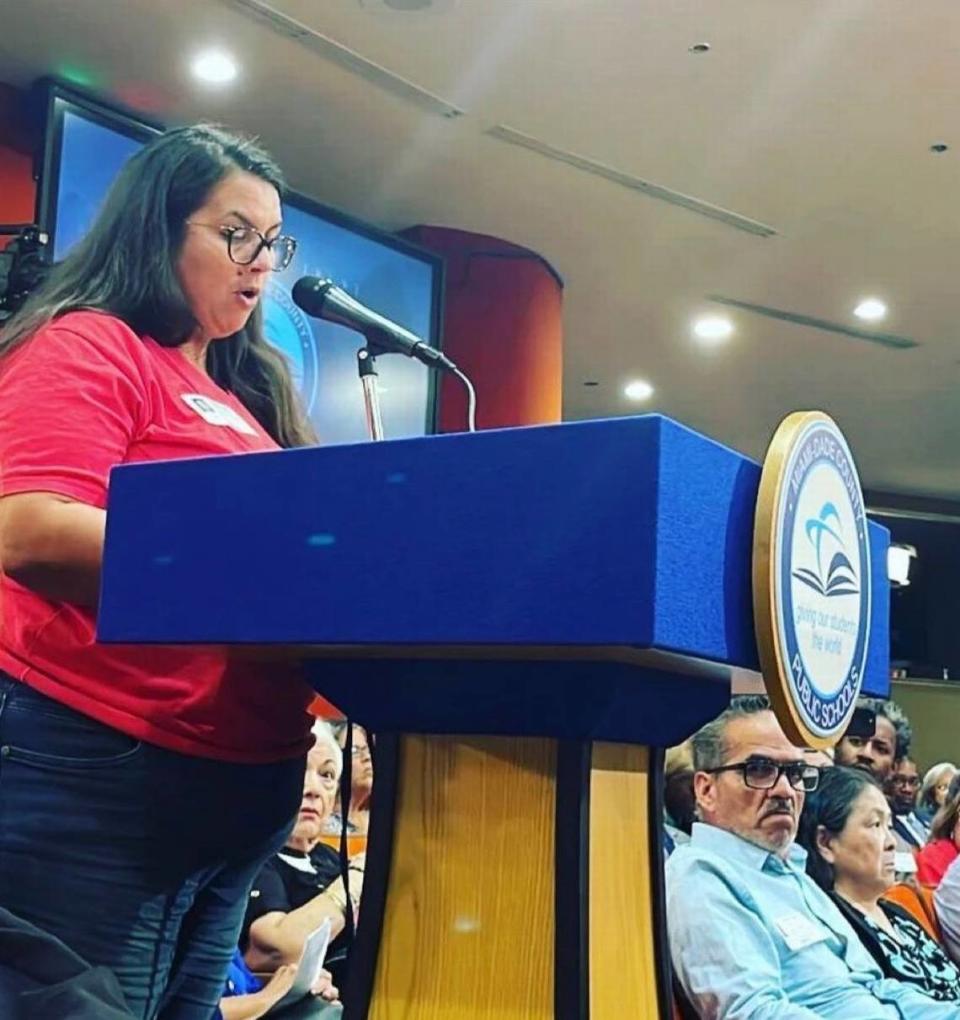How the Miami Herald and el Nuevo’s coverage in 2023 sparked activism and accountability
A series headlined “Shakedown City” revealed how Miami City Hall is infected with corruption. Stories on book banning in schools showed how parents who hadn’t even read the content they opposed affected the education of thousands of students. Environmental reports on sea rise and king tides taught residents which neighborhoods would flood, and when. Real estate fraud, capitalism’s return in Cuba, gang lords’ takeover of Haiti and championship chases by the Panthers and Heat were among the highlights of journalism produced by the Miami Herald and el Nuevo Herald in 2023, according to an annual review by the media company.
The “Miami Herald Impact Report” describes how daily and investigative reporting on the news in South Florida, Tallahassee, Washington, D.C., the Caribbean and Latin America not only informed readers but helped change lives and hold the powerful accountable for their promises and actions.
“The Miami Herald’s impactful journalism transcends headlines, delving deep into the heart of our community to amplify diverse voices and concerns,” said Alex Mena, executive editor of the Herald and el Nuevo Herald. “Through its bold reporting and unwavering commitment to truth, the Herald sheds light, fosters discussion, instigates change, and makes a positive difference in South Florida.”
The Miami Herald and el Nuevo Herald see their mission as one of public service, striving to explain complex issues, expose hidden agendas, help citizens find resources and connect communities throughout South Florida.
“The Herald’s coverage of book banning at a local public school — including the removal of Amanda Gorman’s inaugural poem — was very concerning to me as the mother of two kids, ages 10 and 7,” said Lissette Fernandez of Westchester, co-founder of Moms For Libros. “The Herald’s truthful reporting helped me organize our group and spread the word about how censorship is happening here, too.”

The Herald and el Nuevo are owned by McClatchy, which provides news to 30 U.S. markets, including metro areas in Miami, Charlotte, Fort Worth, Kansas City, Sacramento and smaller cities in 12 other states from California to Pennsylvania.
Although newspapers have been buffeted by a difficult transition to the digital age — hundreds have closed and thousands of reporters have lost their jobs, leaving “news deserts” across the country — McClatchy is committed to expanding its reach on the internet and social media and utilizing innovative storytelling techniques. The annual report says the company’s online sites receive 75 million monthly unique visitors while miamiherald.com and elnuevoherald.com, receive 16.5 million monthly unique visitors.
The Herald is a for-profit enterprise, but has attracted donors and grants for financial support of reporting positions and special projects. The Herald report acknowledges support from the Miami Herald Impact Journalism Fund at the Miami Foundation, with partners such as the Esserman Family Fund, Lynn and Louis Wolfson II Foundation, Ida B. Wells Society for Investigative Journalism, Jorge M. Perez Family Foundation, Florida International University’s Lee Caplin School of Media and Journalism, David and Christina Martin Family Foundation, Perry M. Cohen Foundation, Fryd Family Foundation and many individuals.
They helped the newspaper cover climate change, the arts, faith and investigations. In 2024, the Herald seeks to add reporting into the causes of and solutions for South Florida’s economic mobility challenges. The Herald retains full editorial control.
The Herald provides essential coverage of everyday Miami life — from traffic to weather, crime, business, arts and culture, food and dining, sports — in print, online, newsletters, videos and podcasts.
Among the highlights of the media companies’ coverage:
Herald :
▪ Expose of Gov. Ron DeSantis’ order to fly 49 South American migrants from Texas to Martha’s Vineyard.
▪ Pulitzer Prize for Editorial Writing by the Miami Herald Editorial Board, for a series written by Amy Driscoll, who documented in the “Broken Promises” series how voters were let down by politicians again and again on never-completed plans for transportation, parks and neighborhood renewal.
▪ Extensive coverage of climate change, through articles and the “Stemming the Tide” newsletter, in a place that is ground zero for many adverse effects.
▪ Revealing series on the investigations, criminal charges, lawsuits and alleged influence-peddling that have enveloped Miami’s government leaders in turmoil.
▪ Stories on fraud in South Florida’s No. 1 boom-and-bust industry — real estate development.
▪ Stories, video and a podcast on the Champlain Towers South condo collapse in Surfside and the repercussions affecting survivors, family members and building regulations.
▪ Exclusive reporting on the assassination of Haiti’s president and the anarchy still raging.

